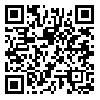Volume 27, Issue 9 (11-2020)
RJMS 2020, 27(9): 1-10 |
Back to browse issues page
Download citation:
BibTeX | RIS | EndNote | Medlars | ProCite | Reference Manager | RefWorks
Send citation to:



BibTeX | RIS | EndNote | Medlars | ProCite | Reference Manager | RefWorks
Send citation to:
Ourojzadeh F, Azarnia M, Miraolghasemi S G, Hadi M. comparing the effect of bovine serum albumin and Zn supplementation (Zn) in culture medium (MHRM) on the number of fetuses produced by IVF in mice. RJMS 2020; 27 (9) :1-10
URL: http://rjms.iums.ac.ir/article-1-5946-en.html
URL: http://rjms.iums.ac.ir/article-1-5946-en.html
Faculty of biological Sciences, Kharazmi University, Tehran, Iran , f.oroujzadeh@yahoo.com
Abstract: (2708 Views)
Backgruond and Aims: Infertility is defined as the failure to achieve a clinical pregnancy after 12 months of regular intercourse. Currently, approximately 80 million couples in the world, as well as more than 1/5 million couples in Iran are infertile. For the past several decades, assisted reproductive techniques (ART) have been used to compensate for infertility in humans and valuable animals. The world advances in IVF over the past decades have been rapid and impressive, and culture media have played an important role in this success. Evidence suggests that culture medium conditions are important in IVF results and affect pre- and post-implantation development, and possibly offspring health . Due to the need of modern societies for IVF and the increasing progress of science and knowledge, attention to how this technique is implemented is becoming more and more important. What is certain is that achieving healthy fetuses and pregnancies in the very first IVF is important to save time and especially the cost of infertile couples. For this purpose, in the present study, autologous serum and zinc supplement (Zn) were used in culture medium to determine its effect on the number of embryos obtained from IVF and survival rate.
Methods: In this study, male and female NMRI mice of the same age (7 weeks) were selected. The animals were kept under standard conditions and free access to water and food. Female mice were first stimulated to ovulate with PMSG and 48 hours later with HCG. Adult oocytes were collected from Oviduct 20 hours after HCG injection. In each experimental group, 100 oocytes were exposed to sperm for fertilization. Petri dishes containing IVF drops were prepared one day before ovulation and IVF. These drops were included EmbryoCul-MHRM culture medium and 15 mg/ml bovine serum albumin (BSA). After adding BSA to the culture medium, the resulting solution was filtered by 0.2 filters under a laminar hood and the drops were coated with mineral oil to remove possible contaminants. Petri dishes containing 100 μl droplets were incubated for 12-16 hours. Culture groups of IVF were designed in 4 groups, respectively: control group (BSA), control group + zinc supplement, control group + autologous serum (AS), and group without serum and supplement; it was performed with 3 replications in each group. After 24 and 48 hours of incubation of the medium containing oocyte and sperm, 2 and 4 cell embryos were counted, respectively. Data were analyzed by ANOVA1 method. The difference between the results in different groups was considered significant at the level of P≤0.05. Also, the number of resulting embryos and the number of degenerated eggs in each group were determined.
Results: Considering that a significant difference was observed between the control group (BSA) and the group containing autologous serum, it seems that the use of bovine serum albumin is a better option for the increase in embryonic development rate. But a combination of both types of serum is not recommended. Also, adding zinc supplementation can help get more fetuses.
Conclusion: According to the results, it seems necessary to use of BSA in cultures, but its combination with AS is not recommended. It is also advisable to use zinc supplements to increase the number of embryos in the culture medium.
Send email to the article author






